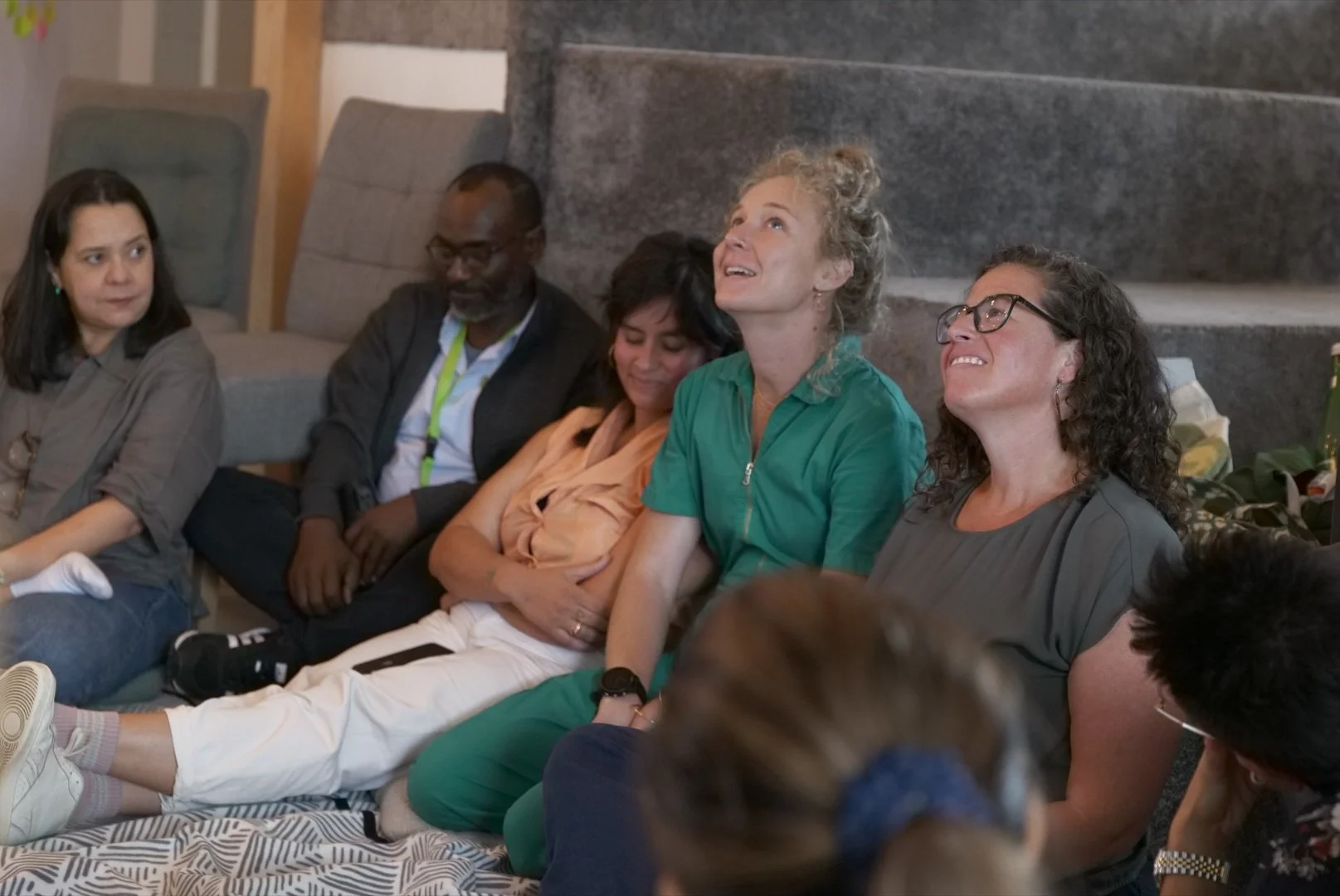The FLAC Met in Serbia!
Twenty-six FLAC members met in Divčibare, Serbia, from August 7 to August 10. The Serbian mountains held us during that week and provided a space to welcome newcomers, get to know each other better at an interpersonal level, engage in team- and trust-building activities, get everyone on the same page, and take bold steps together as we co-create the FLAC’s path forward. Specifically, we worked toward four outcomes:
Twenty-six FLAC members met in Divčibare, Serbia.
1.-Build a collective understanding of the journey from the FLC to the FLAC.
We recalled the history of the FLC from 2019 to 2022.
We reached a collective understanding that the FLAC is the outcome of a longer process of learning across funding practices and relationship-building.
Maytik Avirama Pabon, about whom you can learn more here, joined the FLAC in Serbia as the first member of the Design Team, whose emergence was the result of a process of evolution and co-creation.
2.-Review the FLAC’s vision, principles, and values, as well as its current structure.
We collectively reviewed the FLAC’s vision: Creating and supporting scalable, transformative, systemic, rooted, collective, political, intersectional, justice-centered initiatives needed for climate and gender-justice action.
We workshopped ways to enhance intra-community communication, accessibility, and power decentralization.
We reviewed the FLAC's principles and values, especially as it regards accountability, transparency processes, and collective care practice.
From left to right: Carla, Samuel, María Alejandra, Zoé, and Ivana.
3.-Deep dive into each working group.
We had dedicated sessions for each Working Group so we could discuss their vision, needs, and strategies:
The Governance, Care, and Culture Working Group discussed expectations and time commitments from FLAC members, how to best resource the Coordination Team, and how to gradually decentralize power from the Coordination Team. You can check out the draft Governance Guidelines on Participation, Accountability, and Transparency that the Working Group has been working on.
The Transformative Learning Working Group talked about the nature of learning, the need to disentangle learning from accountability and compliance, and what makes for compelling input; they also developed a co-constructed definition of “Transformative Learning” and a set of guiding questions.
The Donor Advocacy Working Group set themselves the task of identifying resources to support the FLAC’s political strategy, mapping advocacy spaces in 2024, developing the strategies for those events, and facilitating a space for members to workshop effective messaging about the FLAC.
Working Groups have become the primary space for members to engage in the development of the FLAC, so we have done our best to allocate new members into Working Groups based on affinity, capacities, and availability.
4.-Begin drafting the FLAC’s conceptual approach to a feminist climate justice structural analysis.
During the in-person meeting, we heard from a nonpareil group of speakers: Maureen Penjueli, the coordinator for the Pacific Network on Globalisation (PANG); author, scholar, and activist Mariama Williams; and Anita Nayer, women’s rights advocate and director of Regions Refocus, all of whom have extensive experience on the intersections of gender, trade, and climate.
The conversations that emerged from these rich exchanges were incredibly generative. As we move forward with the co-construction of the FLAC, we continue to apprehend the sheer complexity of the issues we are tackling, that is, the different scales and entry points that a feminist climate justice analysis entails–and we are excited to tackle the challenge!


